|
I was very glad to be invited to review Blue Stockings by Jessica Swale in a production by Guildbury’s Theatre Company at The Electric Theatre, Guildford, this week.
It came as a shock to learn at the end of the play that it was not until 1948, within the lifetimes of many in the audience, that women were for the first time allowed to graduate from university. This play, set in 1898, deals with the realities of the long fight by young women and their teachers for the rights of women to study and graduate from Girton College, Cambridge. The political thread of the plot is entangled with a love story, as four young women begin the September term’s studies in the Science Faculty at Cambridge University. Alison Nichol, Claire Racklyeft, Jill Coles and Florence Wright, as Tess, Carolyn, Celia and Maeve, bring their various characters to life with humour and sensitivity. Ridicule, contempt, disbelief, disapproval and bullying from most of the men they meet (and some of the women, too) shake but don’t deter their ambition to “know about more than just me”. Eleanor Shaikh (Mrs Welsh) and Denise Cassar (Miss Blake) give spirited performances as the committed Girton leaders who work towards the goal they cannot know will take another fifty years to attain. Hard decisions and sacrifices are made, as Mrs Welsh insists on patience, to avoid any charge of inciting girls to abandon their traditional roles as wives and mothers. Fearful of antagonising male power, she also stays aloof from the Suffragist movement. A step at a time, she says. First, women must gain equality with men in the professions. The prevailing male fear seems to be exactly that. Showing the choices between love and learning confronting the women, Swayle demonstrates the identity and role conflicts that serious female students faced. Swale keeps to her agenda without descending to a “man-bashing” attitude towards her male characters. The aggressive/defensive voice of Maudesley (Jonathan Jones), the reactionary professor who in Scene 2 denigrates women in a brutal and shocking speech based on the real man’s writings, is balanced by a range of more sympathetic male characters in this well researched and crafted play. Guildbury has dedicated this production to the memory of Doreen Bellerby. It's showing all this week until 28th March. You can book tickets here.
2 Comments
Two theatrical experiences at the Yvonne Arnaud Theatre last week, of very different types. It's always pleasing to be invited to review a play on the main stage: the price of tickets is a factor that can't be discounted, and the standard is normally very high there, as it is in the Mill Studio, the more affordable intimate space where I've enjoyed many brilliant productions.
This week "Birdsong" came to the main stage, from the Duke of York's Theatre in London. On Monday I had the opportunity of reviewing it for Essential Surrey, the online Surrey magazine. Having enjoyed Sebastian Faulks' novel, I looked forward to seeing Rachel Wagstaff's adaptation but was disappointed. The production was stronger than the adaptation and I had to say so, however regretfully. Faulks himself has said of the screen play made of his novel, "It's a work in progress," and the same seems to apply to the stage adaptation. Perhaps his densely and sensitively written story is not suitable for condensing into a two and a half hour script, after all. http://www.essentialsurrey.co.uk/theatre/review%3A-birdsong-at-the-yvonne-arnaud-theatre,-guildford/ A much more satisfying evening awaited us at the Mill Studio on Thursday. "Pandemonium", written by Susan Tostvig for the Yvonne Arnaud Youth Theatre Act Two group in 2001 and imaginatively revived for this year's youth group production by director Julia Black, was delightful. I was asked to review it for the Surrey Advertiser. Thirty-two young actors aged between 7 and 13 played out a narrative that embraced forty Ancient Greek myths, with verve and a professionalism beyond their years. The story is complex. Pandora (Grace Collins) is created by Zeus (Toby Escolme), because he’s piqued by his creation’s lack of attention, hoping to spread problems that will make men take more interest in the gods. When she opens the box of evils he sends to her fiancé Epimetheus (Spike Prichard), the gods become vain, greedy and selfish and the familiar myths of Narcissus, Midas and the rest are played out in a series of jazzy rock numbers. When Zeus changes his plan, Pandora escapes with the box and a chase begins, until Hope is released and Epithmetheus learns words that will win Pandora’s love. Two performances particularly stood out. Archie Lewis, as Eros, Zeus’s trusted fixer, had tremendous stage presence: he was deeply in character all the time. His use of gesture and his effortless rhythmic dancing were a joy to watch. His timing made him a natural comedian. Hades (Mira Baldwin) was a diminutive business woman in a power-suit singed black by hell-fire. Mira’s sense of self and her immersion in the part allowed her to hold dominion not only over Zeus, but over the whole stage, as she strutted and sneered and plotted evil. The three Heroes, Theseus, Perseus and Odysses, made an endearing team, and Theseus’ jumper was a star in its own right, along with his irrepressible grin. The most mature members of the cast, Evie King beautiful in satin as Hera, Alfie Reeves as wide-boy Midas and Joe Lubeck as vain Narcissus, sang and danced brilliantly. The chorus were indefatigable and tuneful. This was a triumph for the Yvonne Arnaud Youth Theatre’s Act Two and a thoroughly enjoyable 70 minutes’ entertainment by this group of talented, dedicated young people. I'm going to the theatre a lot this month, writing reviews for the Surrey Advertiser and the online magazine Essential Surrey. Here's my review of the production showing at the Yvonne Arnaud this week, which I saw last night. It's up on Essential Surrey now. Here's my original, with a correction to a punctuation typo that got left uncorrected in the published version. It had an all- star cast and production team, and we thoroughly enjoyed it.
“Twelve Angry Men” by Reginald Rose at the Yvonne Arnaud Theatre, Guildford “The most important thing to write about, for me, is injustice,” said Reginald Rose, the author of “Twelve Angry Men”. which he wrote as a screenplay in 1954 after doing jury service himself. It was also produced as a highly successful movie directed by Sidney Lumet in 1965. The excellent theatre production directed by Christopher Haydon at the Yvonne Arnaud Theatre this week is as relevant today as when it was written. The impressive cast is headed by Tom Conti and Andrew Lancel, Like the men locked together into the sweaty jurors’ room in Rose’s play, the audience is at first presented with an apparently unassailable case for a vote to send a young man to the electric chair. All the jurors are white; the defendant is not, a situation that was common in mid-20th century America, according to John Good’s article in the informative programme. A unanimous vote is needed if the jurors are to be released from this claustrophobic room. Eleven of the jurors opt immediately for “Guilty”. Only Juror 8 (Tom Conti) enters the room with doubts that won’t allow him to make a hasty decision on the evidence they have heard in the courtroom. When Juror 8 insists on discussion, emotions begin to rise. “Look at the time!” shouts Juror 7, in fear of missing the big ball game. Others condemn out of ethnic and class prejudices; several are afraid of losing income. The human life that will be saved or lost by the jury’s decision is forgotten, except by the one man who takes the phrase “without reasonable doubt” seriously. We become intimate with each man’s psyche, personality and social prejudices as Juror 8 begins to unpick the details of the “facts” that have been presented to them in the courtroom. “Facts are coloured by the personalities that present them!” exclaims one of the jurors in a moment of revelation. Tom Conti plays Juror 8 quietly, punctuating persuasive logic with telling moments of drama, anger and humour. His main opponent, Juror 3 (Andrew Lancel) gives an impassioned, powerful performance, and every character in this strong cast pulls his full weight. The audience emerges, like the jurors from their ordeal, richer for having witnessed Rose’s study of a cross-section of American society and the intense self-examination of motives, perceptions and prejudices that serving on a criminal court jury should entail to help secure justice. © Janice Windle 10th March 2015 This event, held in Chelsea Old Town Hall in the King's Road, London, was exhausting but I met some great fellow artists. Below is Emily Carew Woodard with her amazing illustrations. Ann Palmer, who paints landscapes, Yuriko Ashino, a calligrapher from Tokyo, another landscape artist called Ulrike, from Austria, and Gary Cedeira, also a landscape and seascape artist, shared the space with me: we had half the platform at the head of the Town Hall, and we accepted our allocations by the organiser with varying degrees of dissatisfaction. In my case, I was unhappy to have only 24" of viewing space in front of my work, which was actually a pathway across the front of the stage, along which visitors edged past my paintings. The others' work was hung at the back of the deep stage, where it couldn't easliy be seen from the main hall. We didn't feel this was value for money! The private view, directly after we had finished hanging our work, was the best part of the experience. I really appreciated the support of the friends who came along. Great to see Claire at the Private View! The pictures above were taken on the third day by Hetty, Ann's daughter, who was a great help. You can see how tired we were, even Emily (immediately above) whose energy and sense of humour were impressive.
The Three Lions
by William Gaminara at The Yvonne Arnaud Theatre, Guildford GU1 3YA I was invited to review this play on behalf of an online magazine, "Essential Surrey" (http://www.essentialsurrey.co.uk/) As a football illiterate I was very relieved to find that I needed to know nothing beyond an awareness of the political importance of world sport, to enjoy its exuberant satire. David Cameron, David Beckham and Prince William are entrusted with ‘bringing football home’ for the 2018 World Cup. From their arrival at their Swiss hotel to the hilarious outcome of their project, absurdity escalates through political and social comment to genuine farce and back again. Communication among these “Lions”, hampered by the British class system, breeds comedy, quite apart from the farcical situations involving Cameron’s inexperienced young female intern assistant and some embarrassments concerning trousers. Dugald Bruce-Lockhart’s Cameron is a triumph of balletic media-trained body-language. Seated, he spreads his limbs to occupy three ordinary men’s space; standing, he extends a dynamic foot in front of him, as though caught mid-stride. Thinking, he poses with finger on brow. On his tongue are the stock leaders’ phrases, becoming steadily more desperate as the situation develops beyond his control. Séan Browne plays a brilliant caricature of David Beckham’s public image as style icon. Gaminara has written him as gentle, dapper, slightly out of his depth on any subject other than fashion and football. But this is a Beckham who won’t be put down when he doesn’t see the logic behind William’s objection to his phrase “we’ve got two alternatives” applied to two different paths of action, and the Prince has to be content to differ on this point, among other howlingly funny altercations about semantics between the two. Third in this dysfunctional team, Tom Davey’s Prince William is a stiff, insecure Etonian, whose stock responses are “Yah” and “Defo” and interruptions to correct his companions’ grammar (Cameron is pulled up – “Stad-i-a not stadiums” and Beckham’s insistence on “D and A” for “DNA” is a great piece of dialogue). Jenny Wilford (Penny, the star-struck inexperienced intern) is a pretty catalyst for farce. The other characters are all male, but I won’t spoil the plot. The strength of “The Three Lions” is in the dialogue. The comic timing of all the cast is impeccable. Satirical points on issues of class, privilege and power are no less telling for being scored with the lightest of touches. After all, as Penny asks, what is the difference between a bribe and an incentive? The answer is, says Cameron in the play, “One works and the other doesn’t!” Janice Windle 04/02/2015 |
Archives
March 2024
Categories
All
|
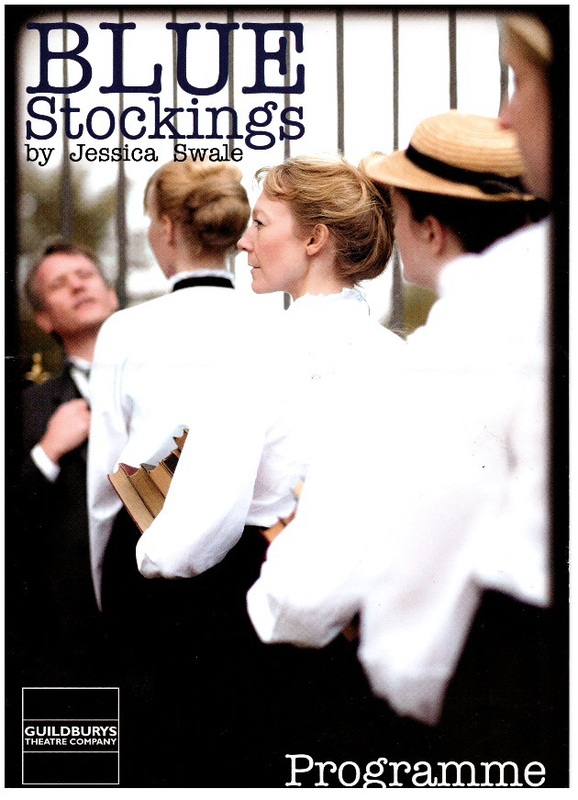
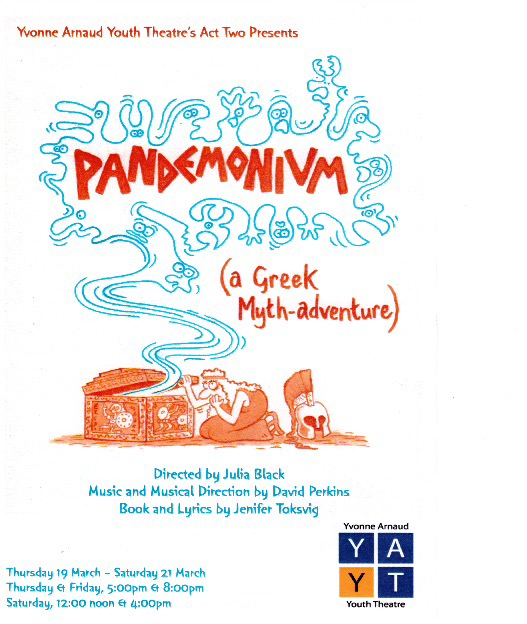
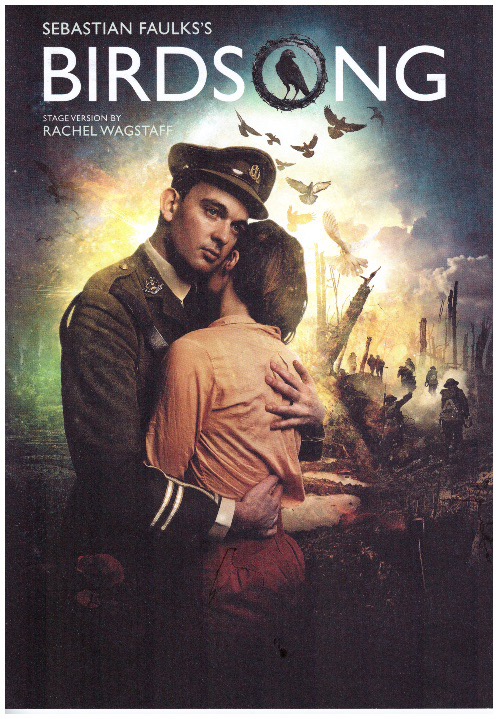
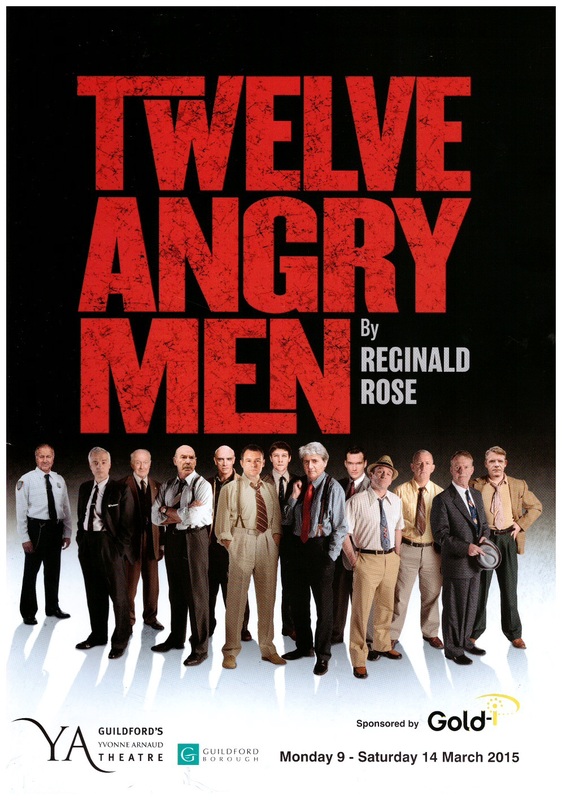
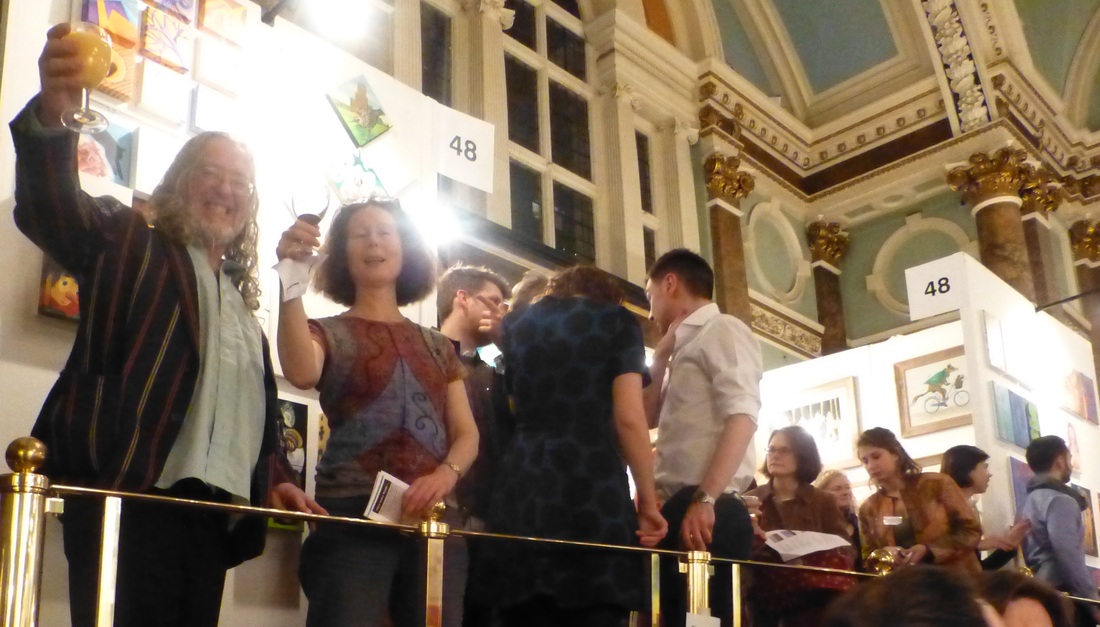
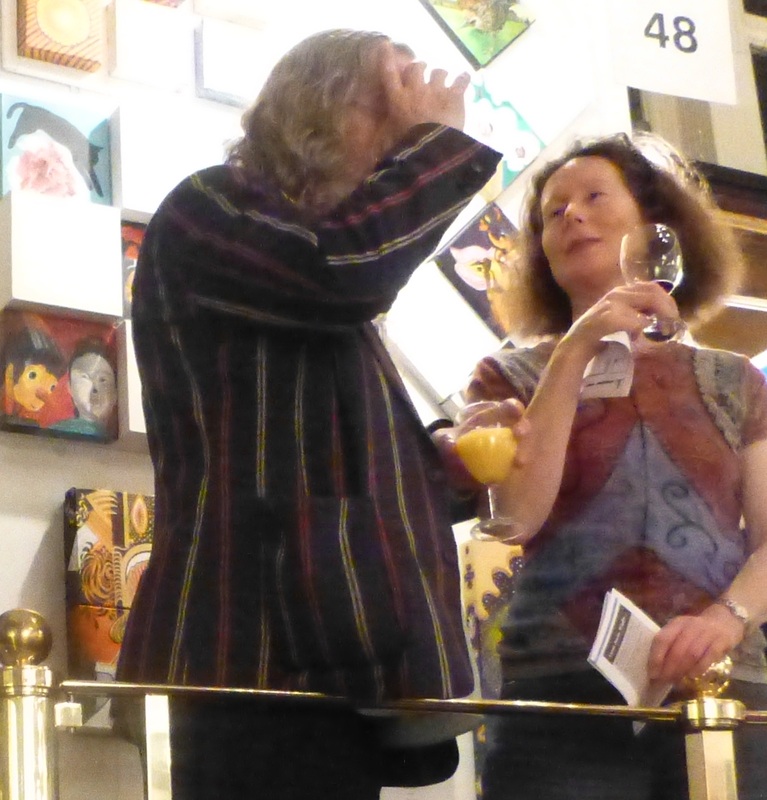
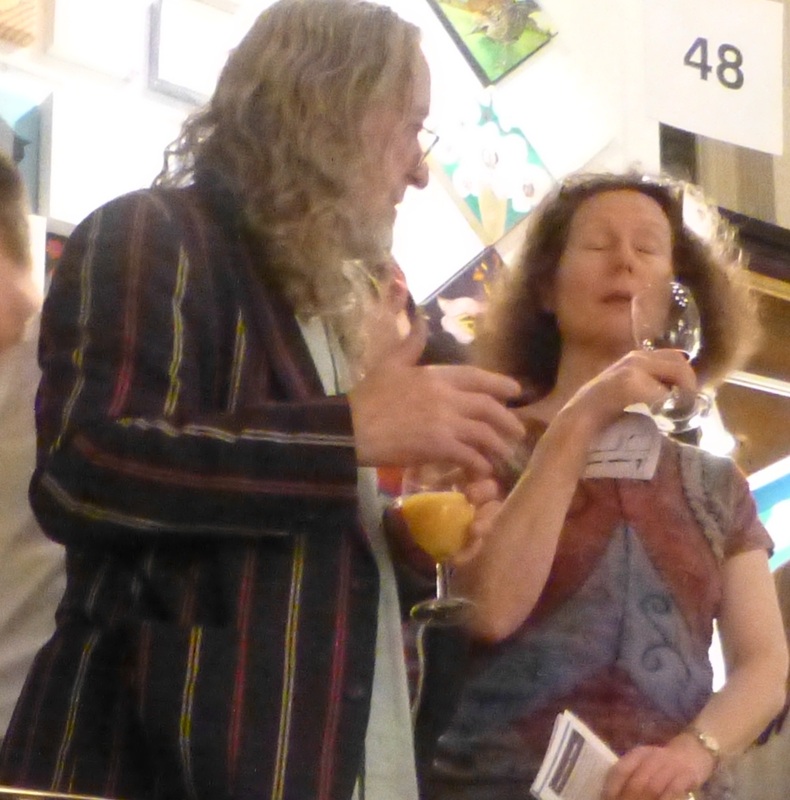
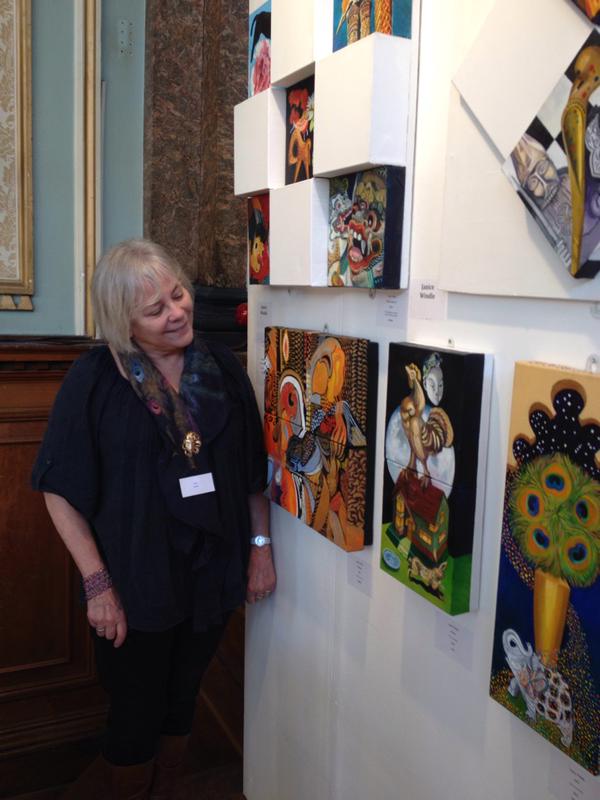
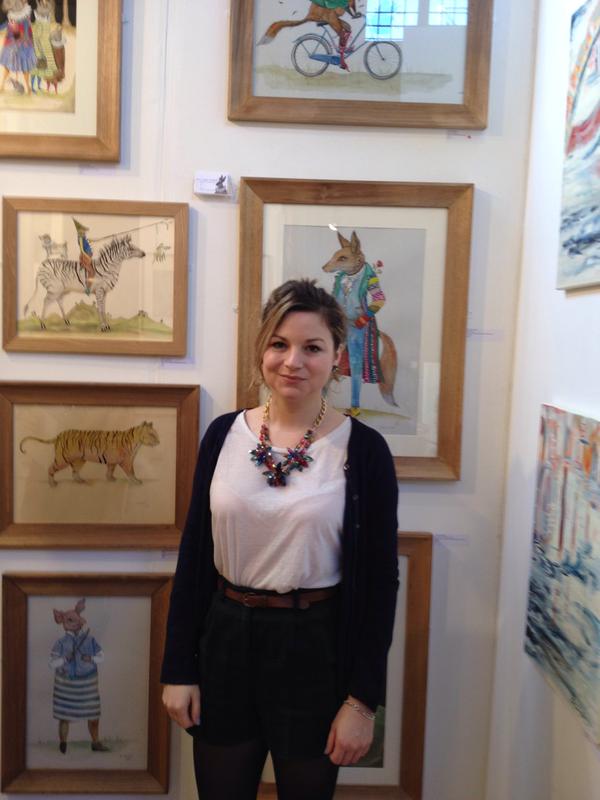
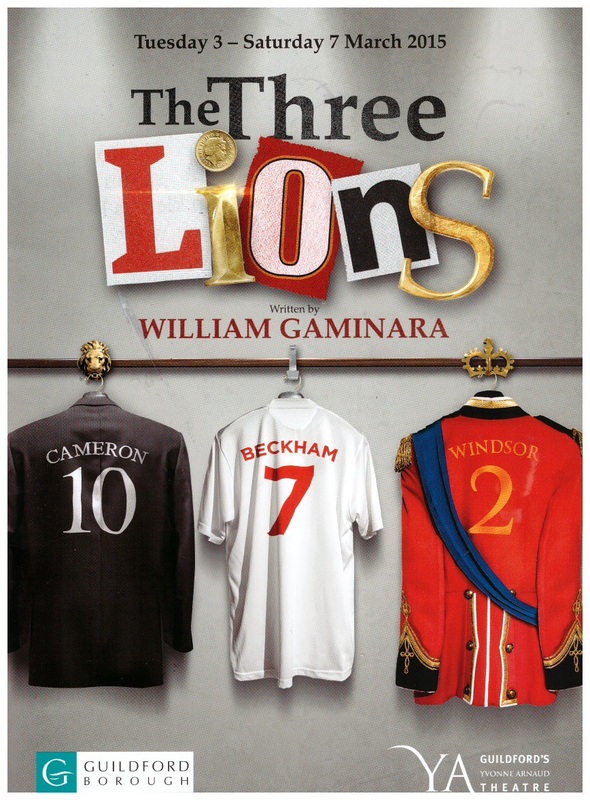
 RSS Feed
RSS Feed